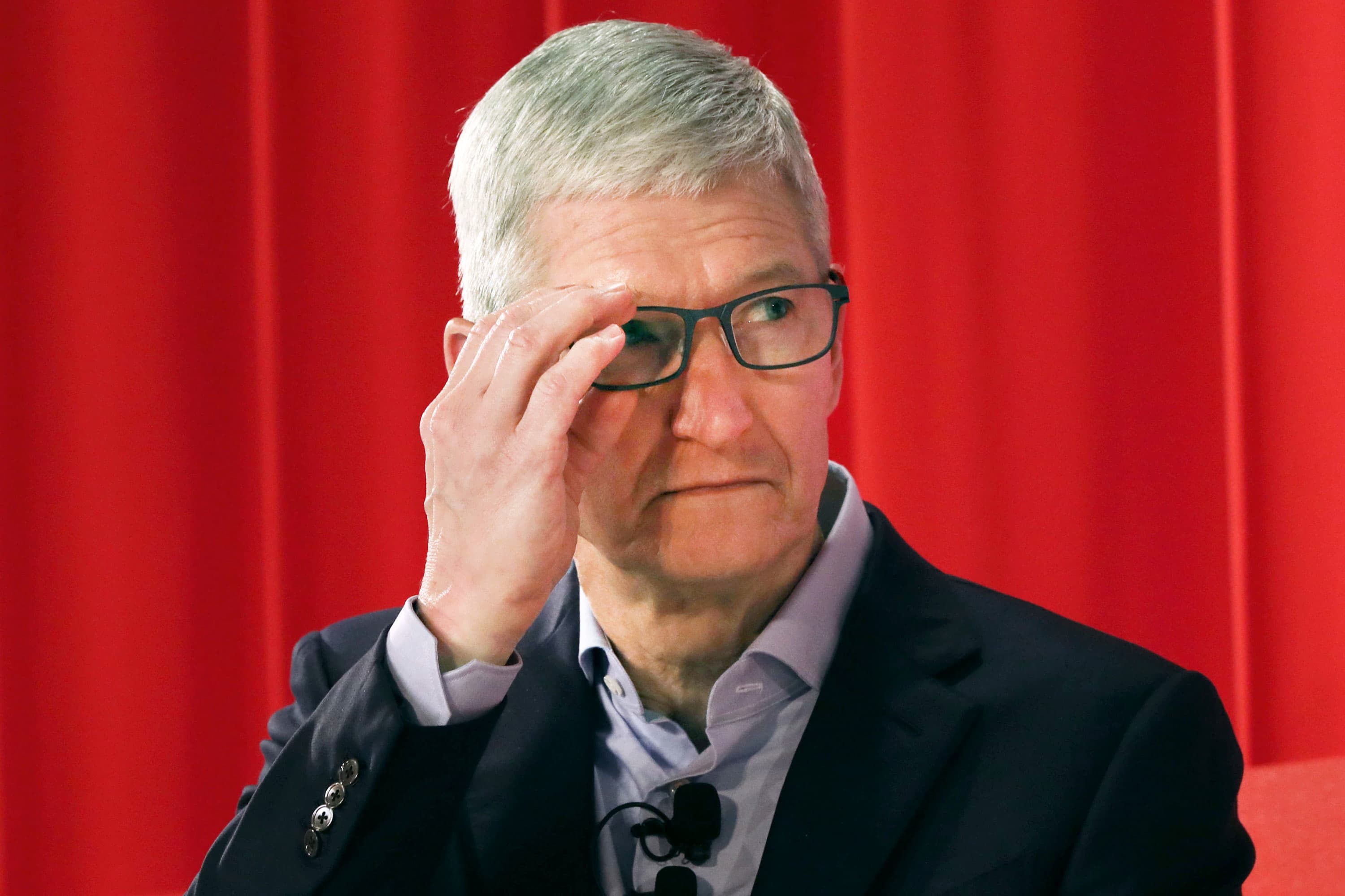Apple reported fourth-quarter earnings on Thursday that slightly exceeded Wall Street expectations, but the company did not offer investors any guidance for the quarter ending in December. iPhone sales were down more than 20% year-over-year.
Here’s how Apple did versus analyst expectations via Refinitiv estimates:
- EPS: 73 cents vs 70 cents estimated
- Revenue: $64.7 billion vs $63.70 billion estimated, up 1% year-over-year
- iPhone revenue: $26.44 billion vs. $27.93 billion estimated, down 20.7% year-over-year
- Services revenue: $14.55 billion vs. $14.08 billion estimated, up 16.3% year-over-year
- Other Products revenue: $7.88 billion vs. $7.40 billion estimated, up 20.9% year-over-year
- Mac revenue: $9.0 billion vs. $7.93 billion estimated, up 28% year-over-year
- iPad revenue: $6.8 billion vs. $6.12 billion estimated, up 46% year-over-year
- Gross margin: 38.2% vs. 38.1% estimated
The lack of fiscal first-quarter 2021 guidance from Apple means that investors and analysts don’t get a hint at how Apple is projecting the sales performance of the iPhone 12, which went on sale in October.
Apple stock dropped over 4% in extended trading.
“If you look at the case count, the case counts are climbing in Western Europe. They’re climbing in the United States. And so there’s still a sufficient level of uncertainty out there… we don’t believe that’s an environment to guide into,” Apple CEO Tim Cook told CNBC’s Josh Lipton.
Apple hasn’t offered guidance for the past two quarters because of uncertainty related to the Covid-19 pandemic.
However, Cook said that he was optimistic about iPhone 12 sales for a number of reasons, including 5G support, carrier promotions, and a loyal install base, and said that “initial data points are really quite good.”
Sales in China were a weak point for Apple. Sales in greater China, which includes Hong Kong and Taiwan, dropped to $7.95 billion from $11.13 billion a year before, over a 28% decrease.
“A larger percentage of China revenue is made up of new iPhones. And so that’s the reason the number for the total quarter started with a minus sign. But given what we see in the early going with the new iPhones, we’re confident we’ll grow in Q1,” Cook told CNBC.
iPhone revenue was down over 20% from the same quarter last year and came up short against Wall street expectations. However, many investors and analysts are more focused on how the iPhone 12 will sell in the coming year. Apple’s iPhones went on sale this year in October, and more models are planned for next month, meaning that sales from the new devices aren’t counted in this quarter.
Cook also said that Apple wasn’t concerned about concerns that the iPhone 12, which is 5G-enabled, is outpacing the construction of 5G networks. “There are obvious places in the world where it’s more ahead than in others,” Cook said. “But we feel like we are entering sort of at exactly the right time.”
Revenue for Macs and iPads both exceeded analyst expectations, most likely driven by strong work-from-home trends during the pandemic. Apple drew attention to strong results in those categories last quarter, too. Overall, Mac revenue was up 28% year-over-year and iPad revenue rose 46% from the same quarter last year.
Cook hinted at future product launches in 2020, likely Mac computers that use Apple-designed chips. “Without giving away too much, I can tell you that this year has a few more exciting things in store,” Cook said.
Apple released new Apple Watch Series 6 models that went on sale in September. The category that those devices are counted in for sales is called Wearables, Home, and Accessories, which came in slightly higher than expectations. The category also includes sales from headphones such as AirPods and Beats. Sales for the category were up over 20% on a year-over-year basis.
Investors are always closely examining Apple’s services business, which includes subscriptions like iCloud and Apple Music, fees from the App Store paid by app developers, and licensing revenue. Services revenue exceeded Wall Street expectations and grew 16% over last year.
On Friday, Apple will release bundles of its subscription services called Apple One, Cook told CNBC. The bundles vary by region but include Apple Music, iCloud storage, and Apple TV+ streaming video among other .
